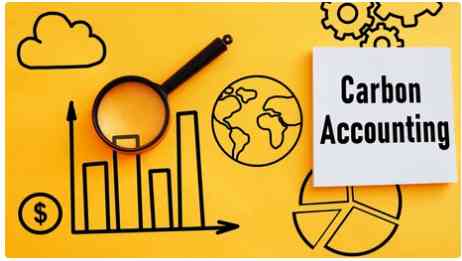Global warming and sustainable reporting is fundamentally intertwined with the urgent need to address climate change. Sustainable reporting, also known as environmental, social, and governance (ESG) reporting, is a mechanism for organizations to transparently communicate their efforts and performance in environmental stewardship, social responsibility, and governance practices.Global warming refers to the long-term increase in Earth's average surface temperature due to the buildup of greenhouse gases in the atmosphere. These gases, including carbon dioxide (CO2), methane (CH4), and water vapor, trap heat from the sun and prevent it from escaping back into space. This phenomenon is similar to how a greenhouse works, hence the term "greenhouse effect."
Human activities, such as burning fossil fuels (coal, oil, and natural gas), deforestation, and industrial processes, have significantly increased the concentration of greenhouse gases in the atmosphere. This enhanced greenhouse effect leads to an overall warming of the planet, resulting in various environmental impacts. These impacts include rising sea levels, more frequent and severe weather events, disruptions to ecosystems, and shifts in weather patterns.
Global warming, driven by the escalating levels of greenhouse gas emissions, stands as one of the most pressing challenges of our time. Addressing this crisis necessitates the collective effort of various sectors, including finance and accounting. This article delves into the intricate relationship between global warming and accounting, emphasizing the pivotal role accountants play in fostering sustainable practices.
As global warming continues to accelerate, the role of accounting in mitigating its impacts cannot be overstated. Accountants serve as key players in carbon accounting, ESG reporting, risk management, disclosure, and sustainable investment decisions. By integrating climate-related considerations into financial reporting and decision-making, accountants contribute significantly to the global effort to combat climate change and foster a sustainable future. It is imperative that accountants continue to champion transparency, accountability, and sustainability in their professional practices.
The relationship between global warming and accounting lies in the critical role that accounting practices play in addressing and mitigating the impacts of climate change. Here are some key aspects of this relationship:
1. Carbon Accounting:
Carbon accounting entails quantifying and monitoring an organization's greenhouse gas emissions. By tracking emissions sources, companies can pinpoint areas for improvement and implement strategies to reduce their carbon footprint. This process aids in compliance with environmental regulations and bolsters an organization's commitment to sustainability.

2. Environmental, Social, and Governance (ESG) Reporting:
In recent years, ESG reporting has gained prominence as a framework for evaluating a company's performance in areas of environmental responsibility, social equity, and corporate governance. Accountants are instrumental in compiling and analyzing data for ESG reports, shedding light on a company's efforts to mitigate climate change and contribute to a sustainable future.

3. Risk Assessment and Management:
Global warming poses multifaceted risks to businesses, from physical risks associated with extreme weather events to transition risks stemming from policy changes and shifts in market sentiment. Accountants play a crucial role in identifying, assessing, and managing these climate-related risks. Their expertise in financial modeling and scenario analysis is invaluable in ensuring the resilience of organizations in the face of climate uncertainty.
4. Disclosure and Transparency:
Accountants are central to ensuring accurate and transparent disclosure of climate-related information in financial statements. The Task Force on Climate-related Financial Disclosures (TCFD) provides a framework for organizations to communicate climate-related risks and opportunities effectively. Accountants are instrumental in aligning financial reporting with TCFD recommendations, enabling stakeholders to make informed decisions.
5. Sustainable Investment Decisions:
Investors are increasingly incorporating environmental considerations into their investment decisions. Accountants play a vital role in evaluating the sustainability performance of companies, enabling investors to allocate capital to businesses that align with their environmental objectives. This shift towards sustainable investing reflects a growing awareness of the financial implications of global warming.
The intersection of global warming and accounting represents a dynamic frontier in the pursuit of sustainability. Accountants are not only record keepers but also strategic advisors, guiding organizations towards a more environmentally conscious future. Their contributions in carbon accounting, ESG reporting, risk management, and stakeholder engagement are integral to the transition towards a low-carbon economy. As the urgency to combat global warming intensifies, the role of accountants in promoting sustainable financial practices becomes increasingly indispensable. By embracing this challenge, accountants stand as catalysts for positive change, driving businesses towards a more sustainable and resilient future.
Accounting practices play a crucial role in addressing global warming by providing the tools and frameworks necessary to measure, report, and manage the financial and operational impacts of climate change. As climate-related risks and opportunities continue to evolve, accountants will play an increasingly vital role in guiding organizations towards sustainable and resilient practices.
Follow Instagram @kompasianacom juga Tiktok @kompasiana biar nggak ketinggalan event seru komunitas dan tips dapat cuan dari Kompasiana. Baca juga cerita inspiratif langsung dari smartphone kamu dengan bergabung di WhatsApp Channel Kompasiana di SINI









